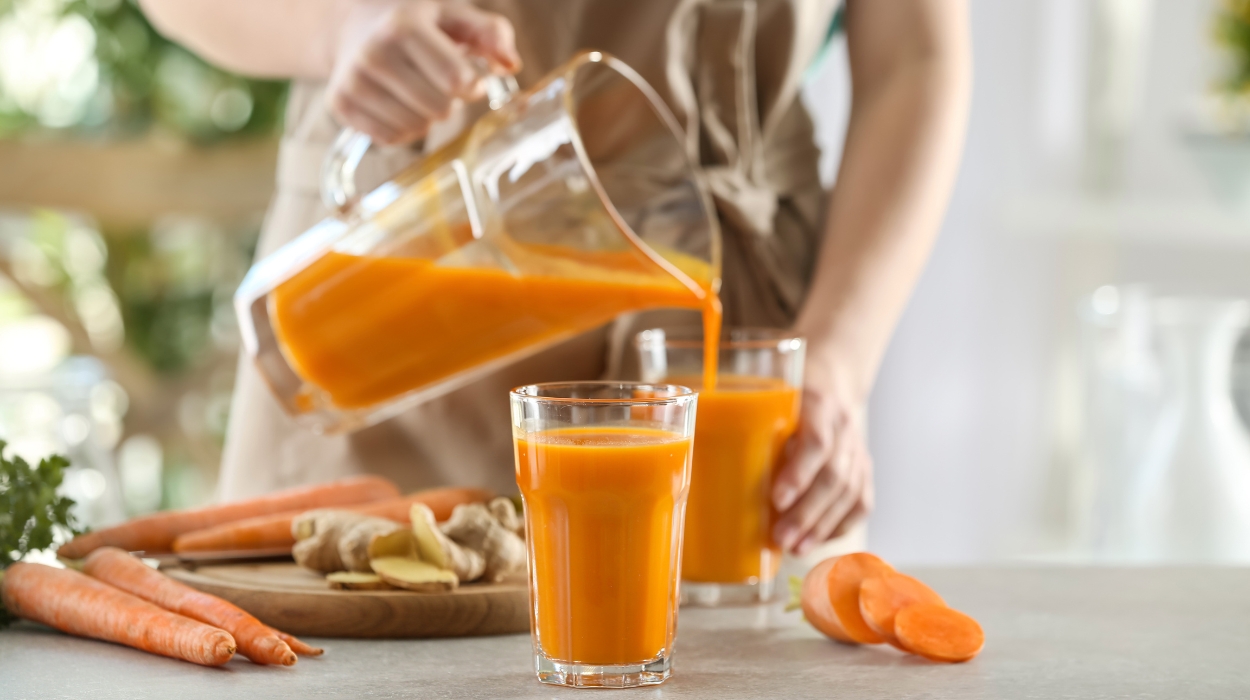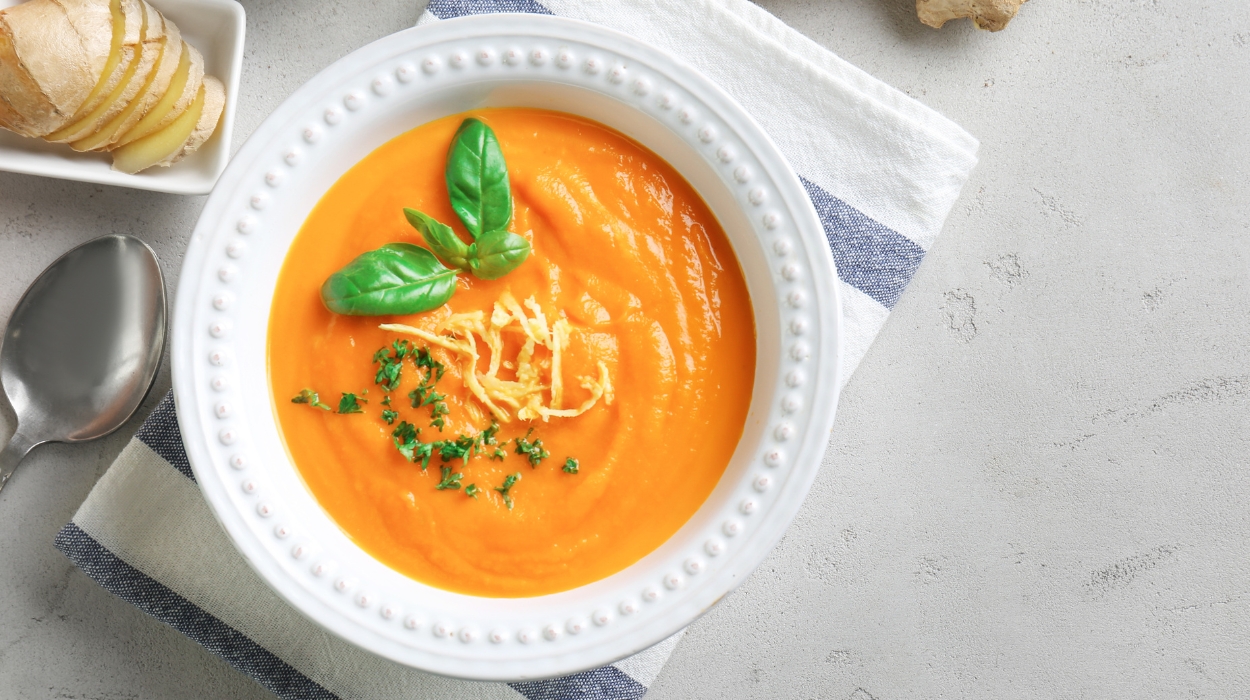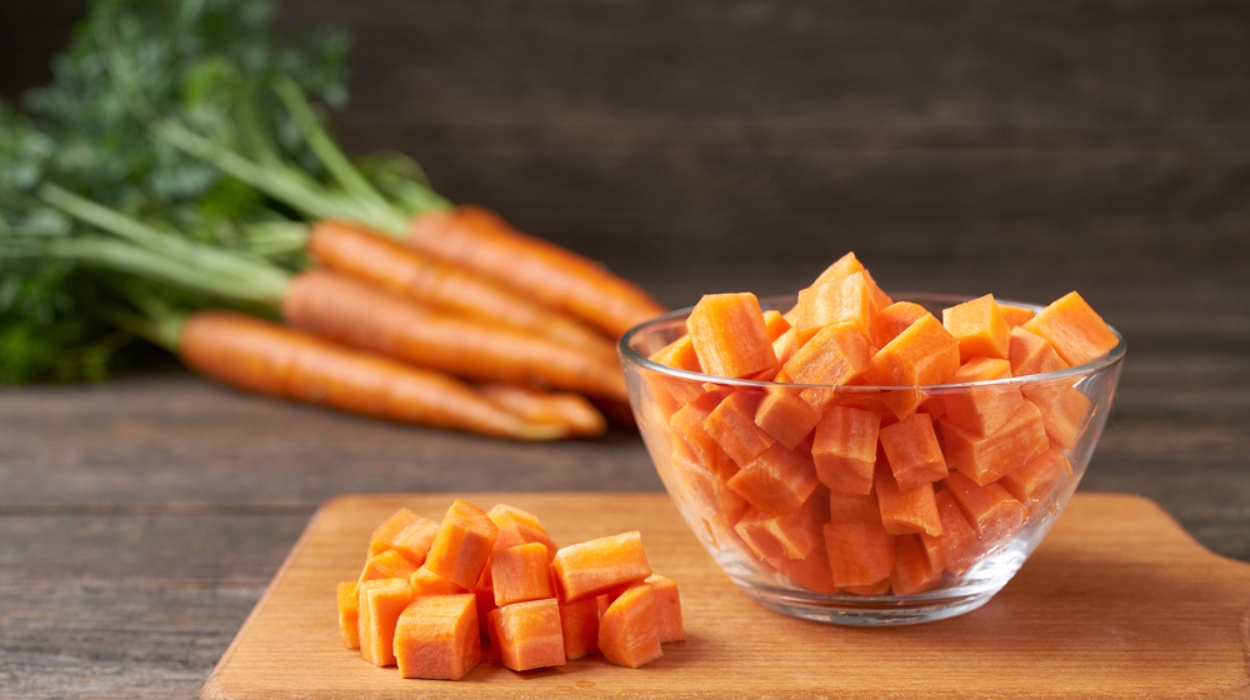Just the mention of diet food often brings a cold, boring salad to mind. But who wants to eat that?
Probably, no one — which is why thinking of weight loss this way isn’t helpful.
The truth is that healthy foods can be made to be extremely delicious. It’s all about getting creative with new recipes and opening yourself up to plenty of fruits and vegetables.
Fortunately, you don’t have to do that all at once. You can more easily reach a calorie deficit to lose weight by slowly adding more veggies to your day.
So, are carrots good for weight loss and worth giving a try? Read on to find out what exactly carrots can do for your body and how to make them tasty enough to want to eat them.
Are Carrots Good For Losing Weight?
Yes, carrots are good for losing weight. They’re fiber and nutrient-rich, which helps you feel full and energized. They’re also packed with antioxidants like vitamin A, which is associated with weight loss.
Are Carrots Good For Weight Loss?

Carrots, like all veggies, are good for dieting and total body health. Here are some reasons why:
Appetite Control
Adding more dietary fiber[1] to your diet is one of the best ways to help you lose weight. Fiber helps you feel fuller for longer, helping to regulate your appetite and reduce cravings.
Fiber stabilizes blood sugar levels by slowing the digestion of starch[2] and sugar. This further aids appetite control since rapid spikes and drops in blood sugar can create cravings for sugary foods.
You need about 25-35 grams of fiber daily to lose weight, depending on your lifestyle and individual factors.
You’ll also want to add water to lose weight since fiber absorbs water in your digestive system. That’s going to help you feel fuller and give you smoother stools.
Low In Calories
Carrots are fiber and nutrient-rich plus low in calories. For example, two medium raw carrots are about 50 calories.[3]
To maintain a caloric deficit, you’ll want to choose various foods that can fill you up without adding too many extra calories. That includes leafy greens, cruciferous, and high water content veggies like celery, zucchini, cucumbers, and tomatoes.
Improved Gut Health
The fiber in carrots feeds your good gut bacteria, helping to create a healthy gut microbiome.[4] This is important because a healthy weight is associated with an increase in gut biodiversity.[5] That means that as you improve your gut health,[6] you can also improve your chances of losing weight.
Antioxidant-Rich
Carrots are full of vitamins and minerals, especially beta-carotene.[7] Your body converts the beta-carotene into vitamin A after eating the carrots. This nutrient helps with your immune function and acts as an antioxidant.
One study shows that vitamin A had anti-obesity activity,[8] helping to prevent metabolic diseases. Evidence showed that this vitamin is involved in regulating new fat cell growth.
How To Eat Carrots For Weight Loss

Here are some examples of ways to enjoy carrots:
Main Meals
- Soups: A hot, thick, and creamy homemade soup can be incredibly comforting. Throwing veggies into a pot with some olive oil, broth, herbs, and coconut milk is the quickest way to go.
- Roasts: One of the easiest healthy family meals you can make is a chicken roasted with carrots and potatoes. It’s a fail-safe recipe sure to satisfy, and with a few herbs, your taste buds will thank you.
- Stews: Carrots are a staple in big one-pot meals. You’ll have leftovers for the week if you take some time to cook on the weekend. Check out recipes online for hearty stews with protein like chicken, lentils, chickpeas, or barley.
Snacks And Sides
- Salads: If you’re tired of leafy green salads, try a healthy slaw with cabbage and carrots. Be mindful of the fatty mayonnaise, however. Plenty of recipes offer hot or cold options with interesting dressings, like peanut Thai.
- Sides: Carrots are versatile enough to go well with most sauces — but eating them on the side with a bit of olive oil and salt is equally delicious.
- Snacks: One of the quickest snacks to eat on the go is raw carrot sticks, or baby carrots, and dip. Hummus can offer a bit of protein, and the carrots are a satisfyingly crunchy snack.
- Smoothies: Carrots blend surprisingly well with fruits and leafy greens. So if you don’t have a juicer — don’t worry; a little blender will do. Add a small carrot for a big nutrient boost.
Get creative to add more veggies to your day, which can make it easier to avoid unhealthy foods to lose weight.
Precautions
Eating carrots is incredibly healthy, but there are still a few things to keep in mind as you add them to your diet:
- Moderation: Even vegetables need to be moderated for variety. Eating too many carrots can lead to an excess of beta-carotene. This can lead to a harmless condition called carotenemia,[9] also called carotenodermia or xanthodermia, where skin turns a little orange. Too much vitamin A may cause fetal abnormalities during pregnancy. Also, unsupervised vitamin A with vitamin E supplementation has been linked to cancers.
- Blood sugar control: If you have diabetes, you’ll want to be careful of your total carbs per day to lose weight. While this veggie has a low glycemic index, too much carrot juice can affect blood sugar.
- Pesticides: Eating lots of veggies, especially with their skin, can lead to an increase in pesticides[10] consumed. Buy organic when you can, and always wash and peel non-organic varieties to reduce your risk.
- Bloating: Veggies like carrots are high in fiber, but eating too much fiber can lead to digestive discomfort. Cook your veggies to decrease your chances of bloating, and watch your portions.
Conclusion
So, are carrots good for a diet? Most definitely. They’re fiber-rich, helping to keep your appetite more stable.
In general, all whole foods, like fruits, veggies, legumes, and seeds, are part of a balanced diet for weight loss. By focusing on slowly adding nutritious foods and movement, you can avoid short-term options like expensive fat burners.
Just be mindful of variety and include plenty of veggies so you don’t get bored. Looking up recipes and getting creative is one of the best ways to avoid diet imbalances and frustrations and still enjoy your food.
Frequently Asked Questions
No, carrots do not help you lose belly fat — no one food can spot-reduce fat. However, all veggies are part of a healthy weight-loss diet.
Yes, you can eat three carrots per day. Remember not to overdo any one food since that can lead to diet imbalance, boredom, and frustration. Variety is essential not just for nutrients but for your enjoyment, too.
Both raw and boiled carrots offer numerous health benefits. Boiling carrots increases the bioavailability of beta-carotene but may reduce the content of other nutrients. In the end, it’s about variety and personal preference.
No, carrots aren’t particularly high in sugar. They have a low glycemic index whether you eat raw carrots or boiled, meaning they don’t spike your blood sugar.
 Evidence Based
Evidence Based
